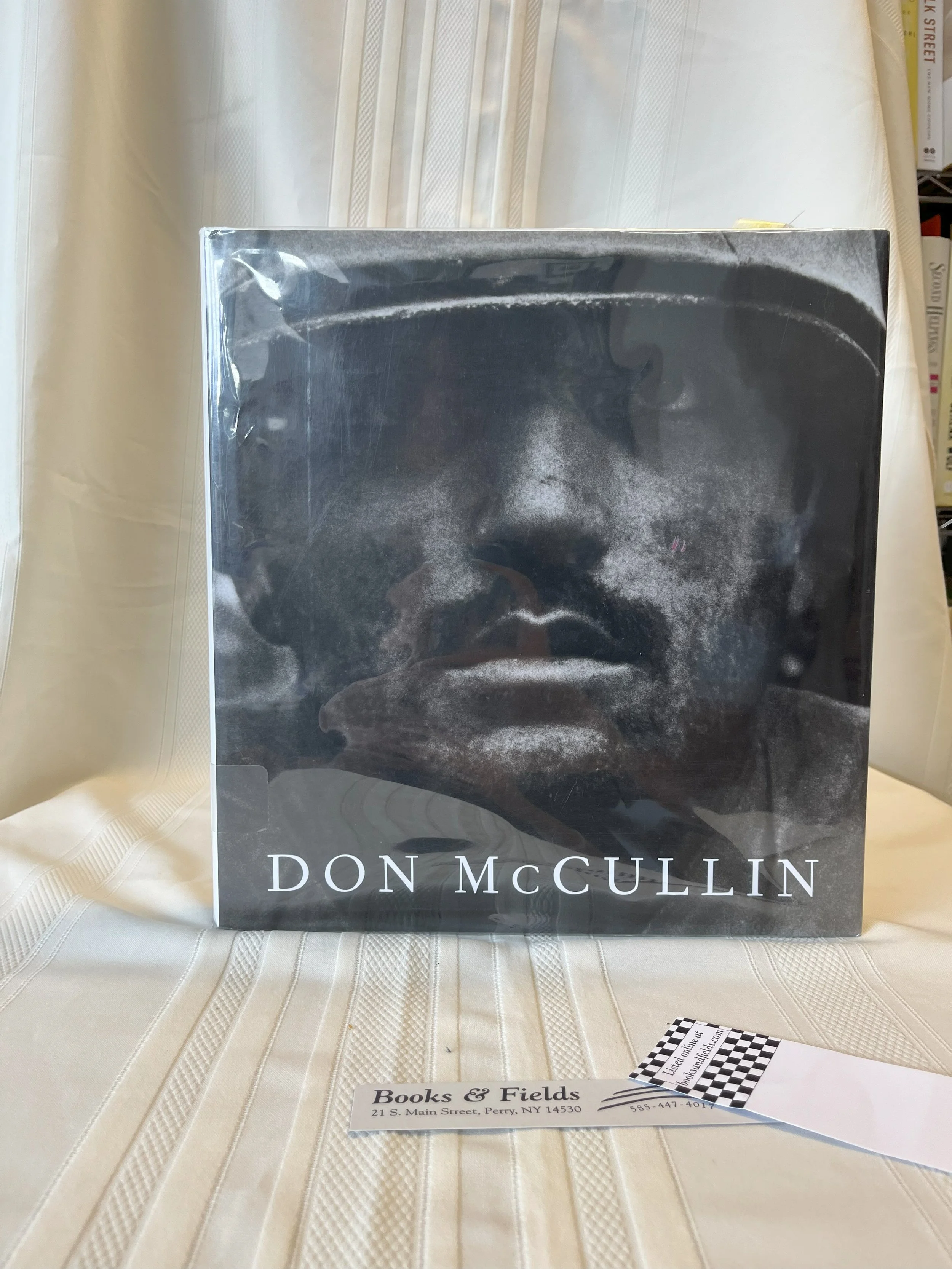 Image 1 of 16
Image 1 of 16

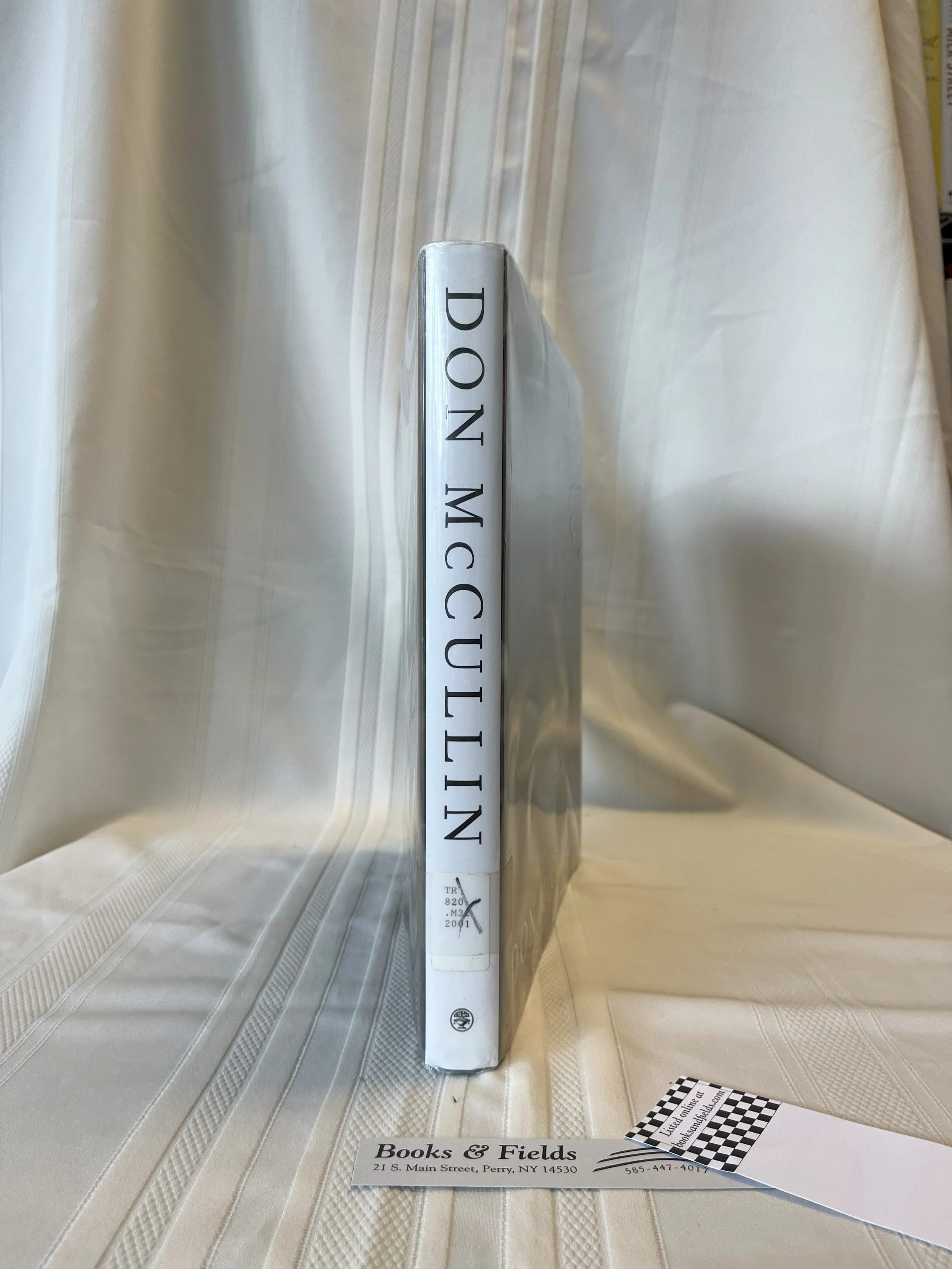 Image 2 of 16
Image 2 of 16

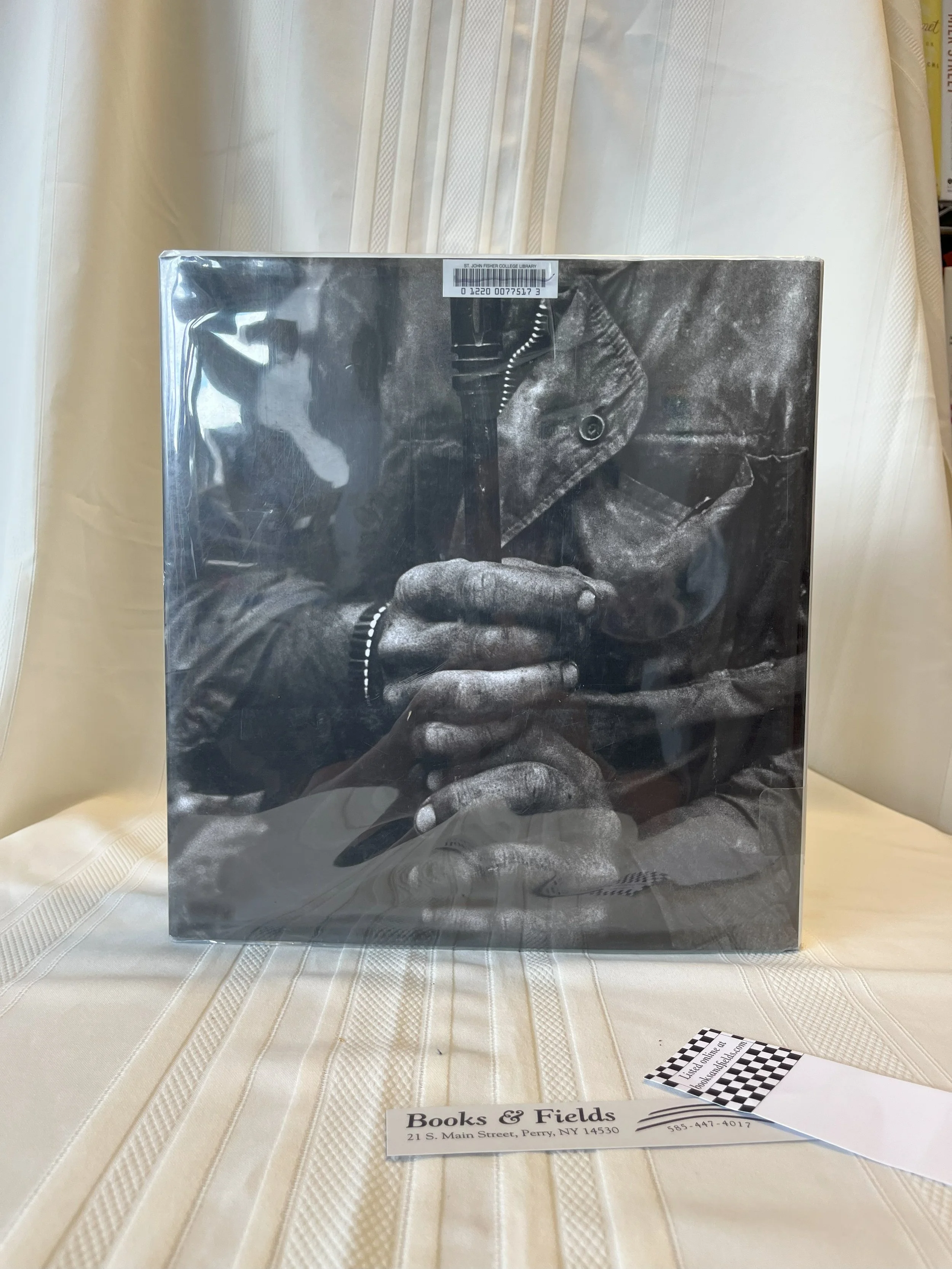 Image 3 of 16
Image 3 of 16

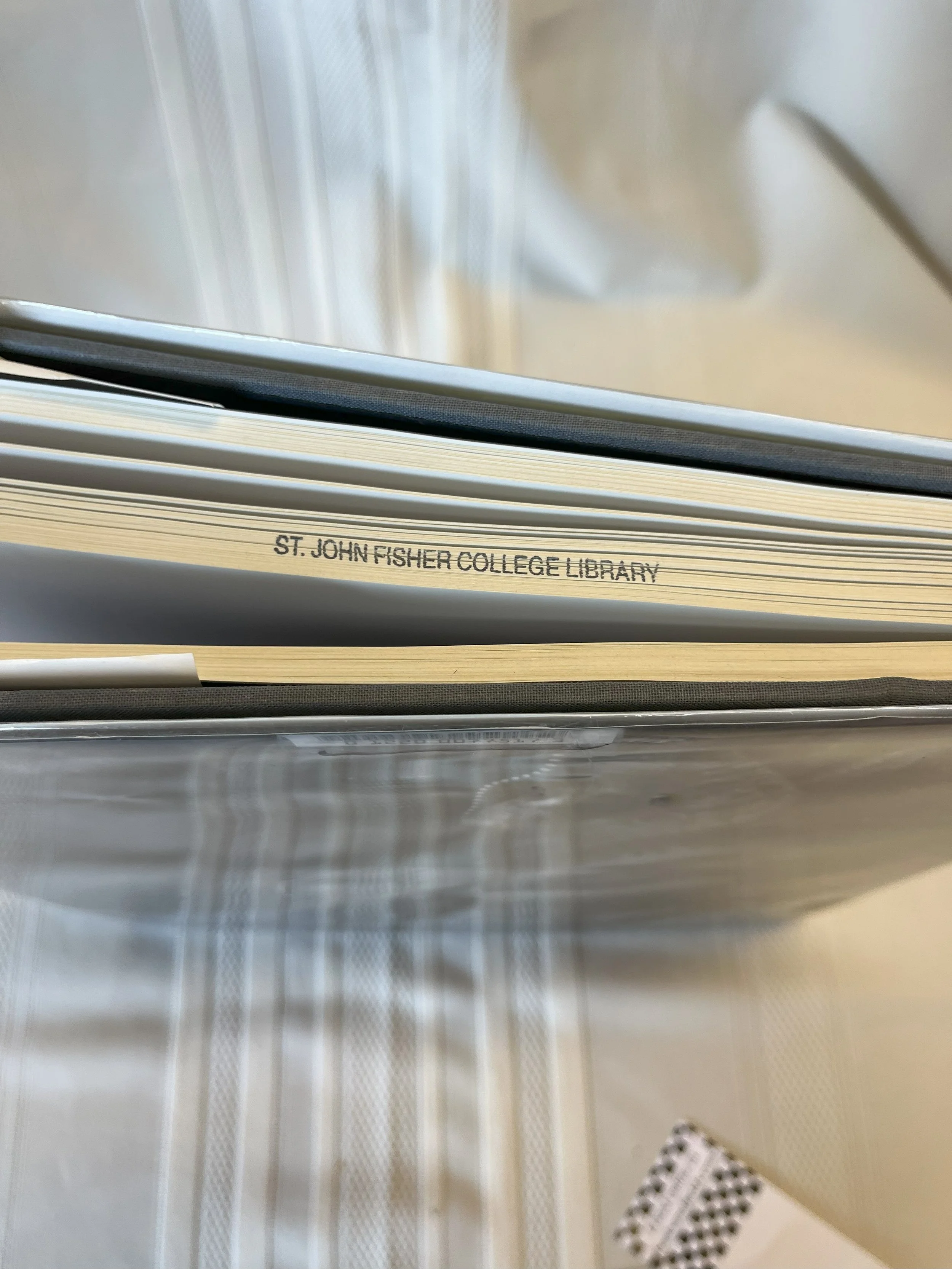 Image 4 of 16
Image 4 of 16

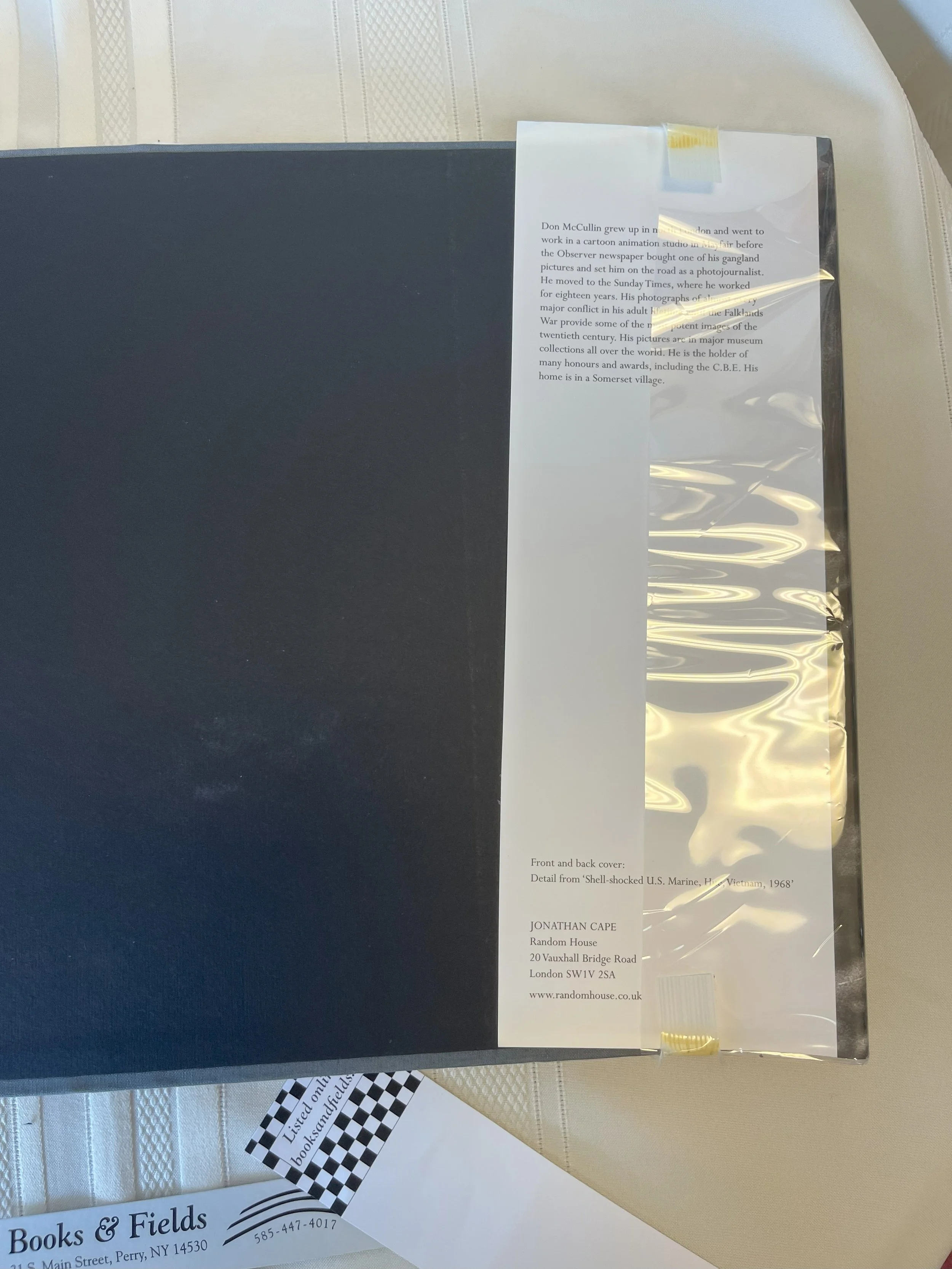 Image 5 of 16
Image 5 of 16

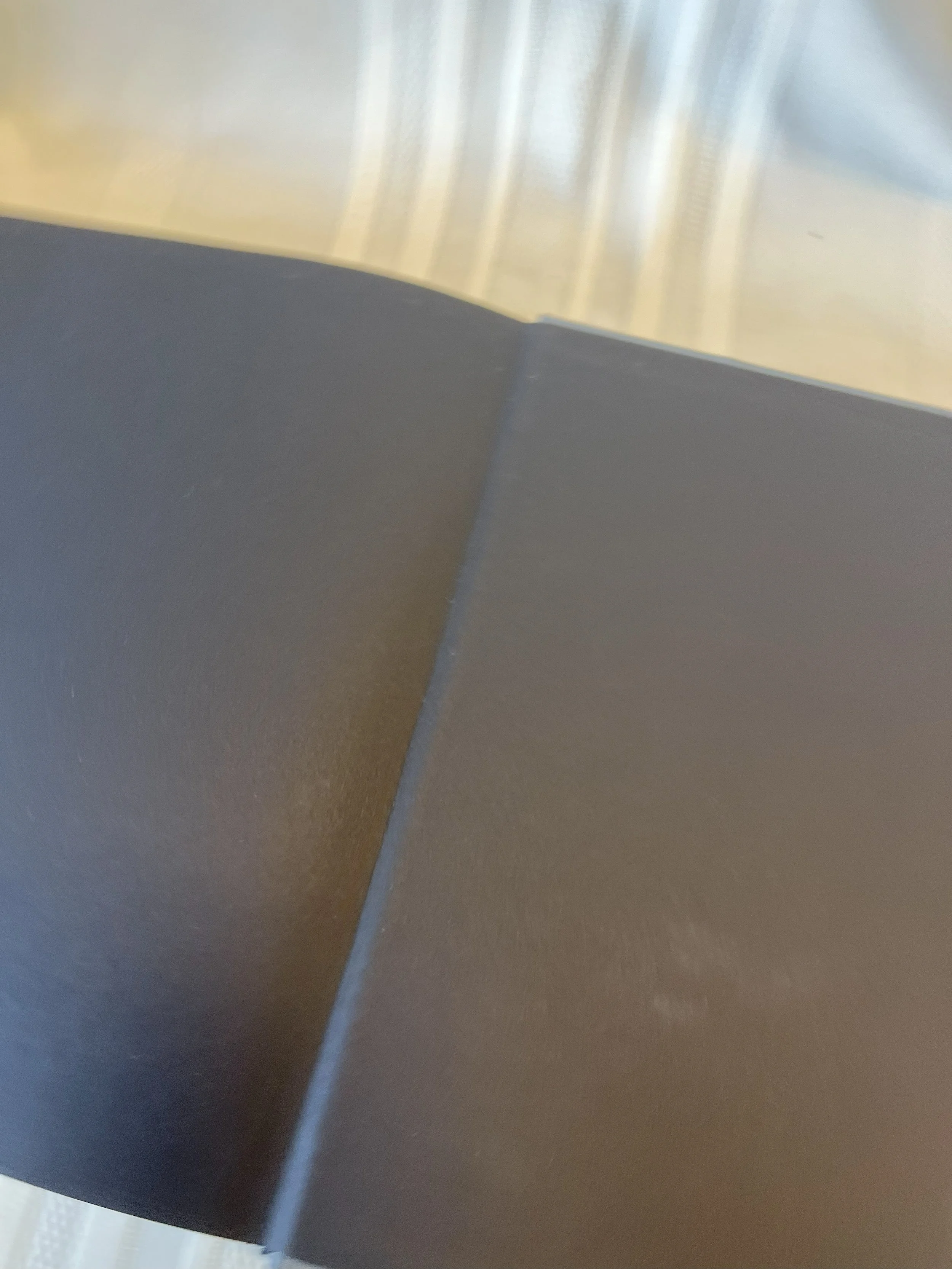 Image 6 of 16
Image 6 of 16

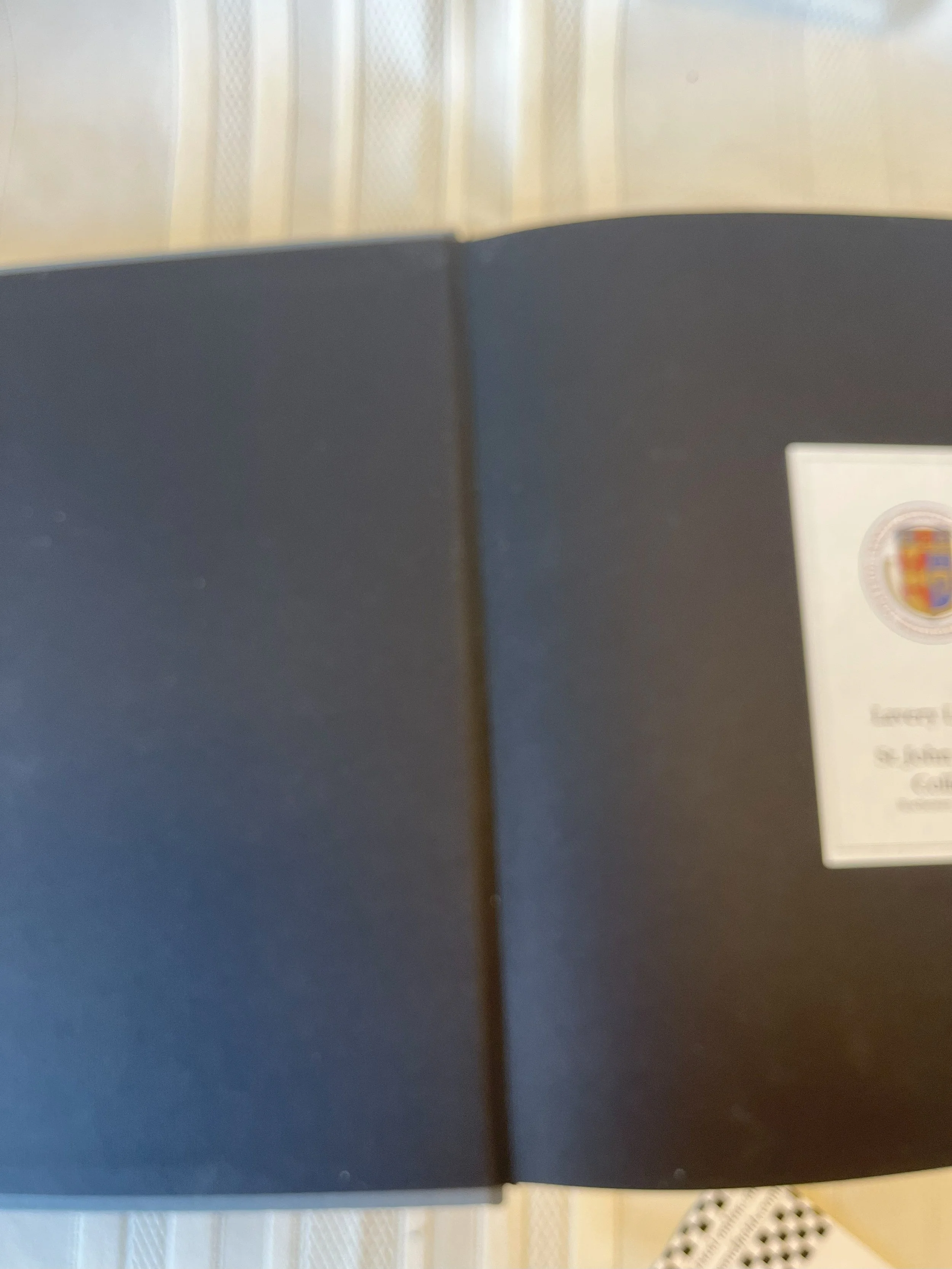 Image 7 of 16
Image 7 of 16

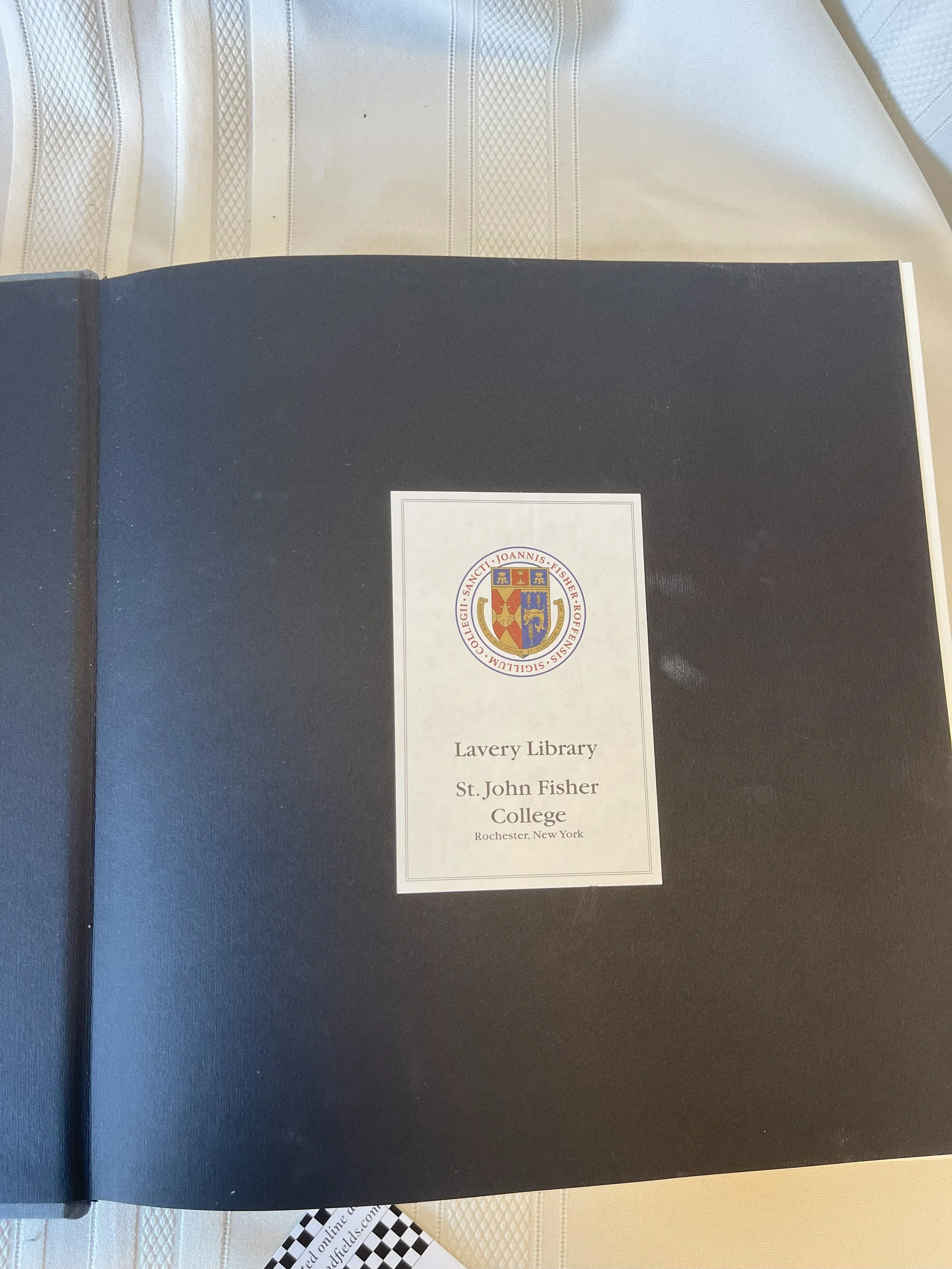 Image 8 of 16
Image 8 of 16

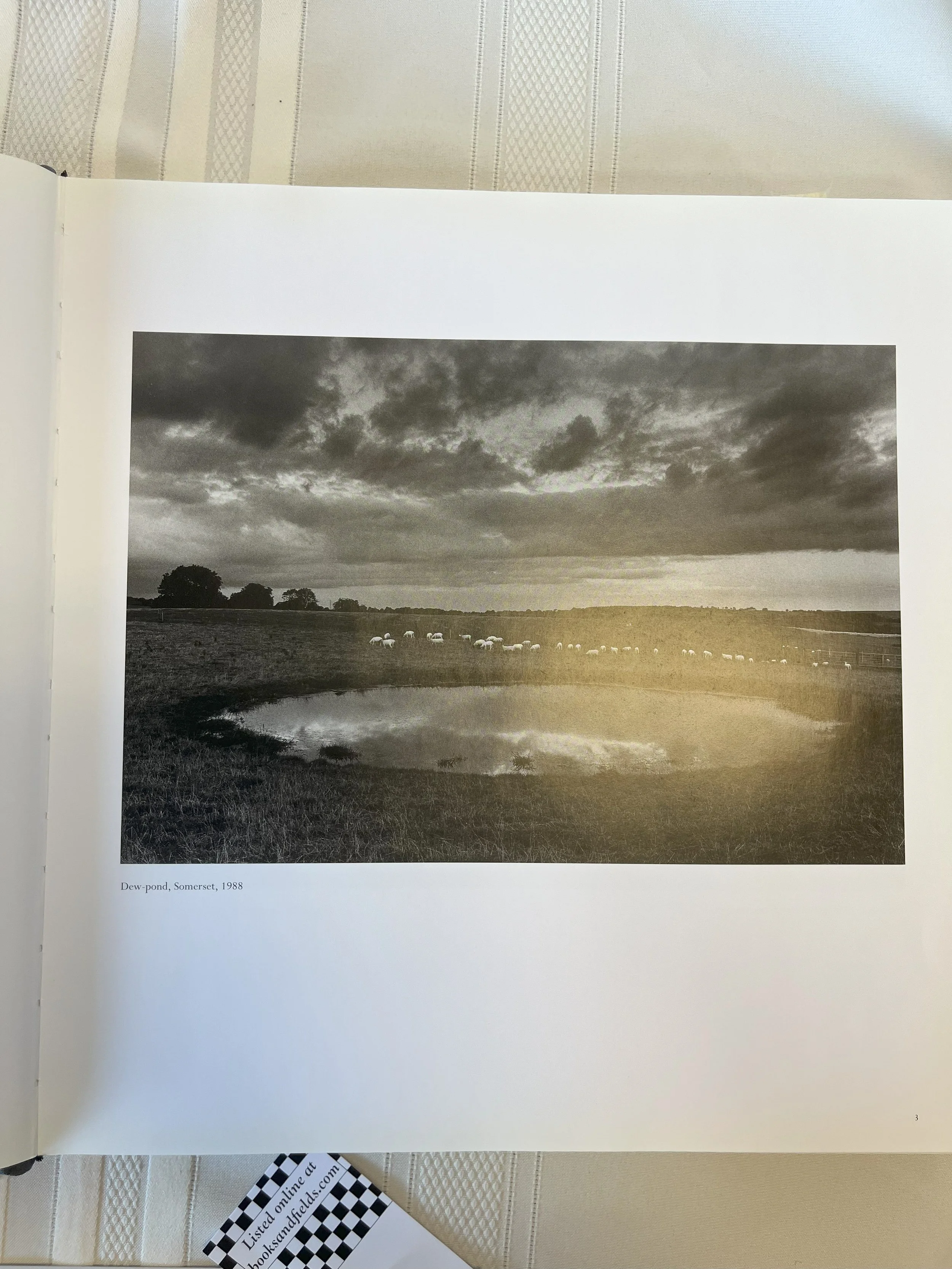 Image 9 of 16
Image 9 of 16

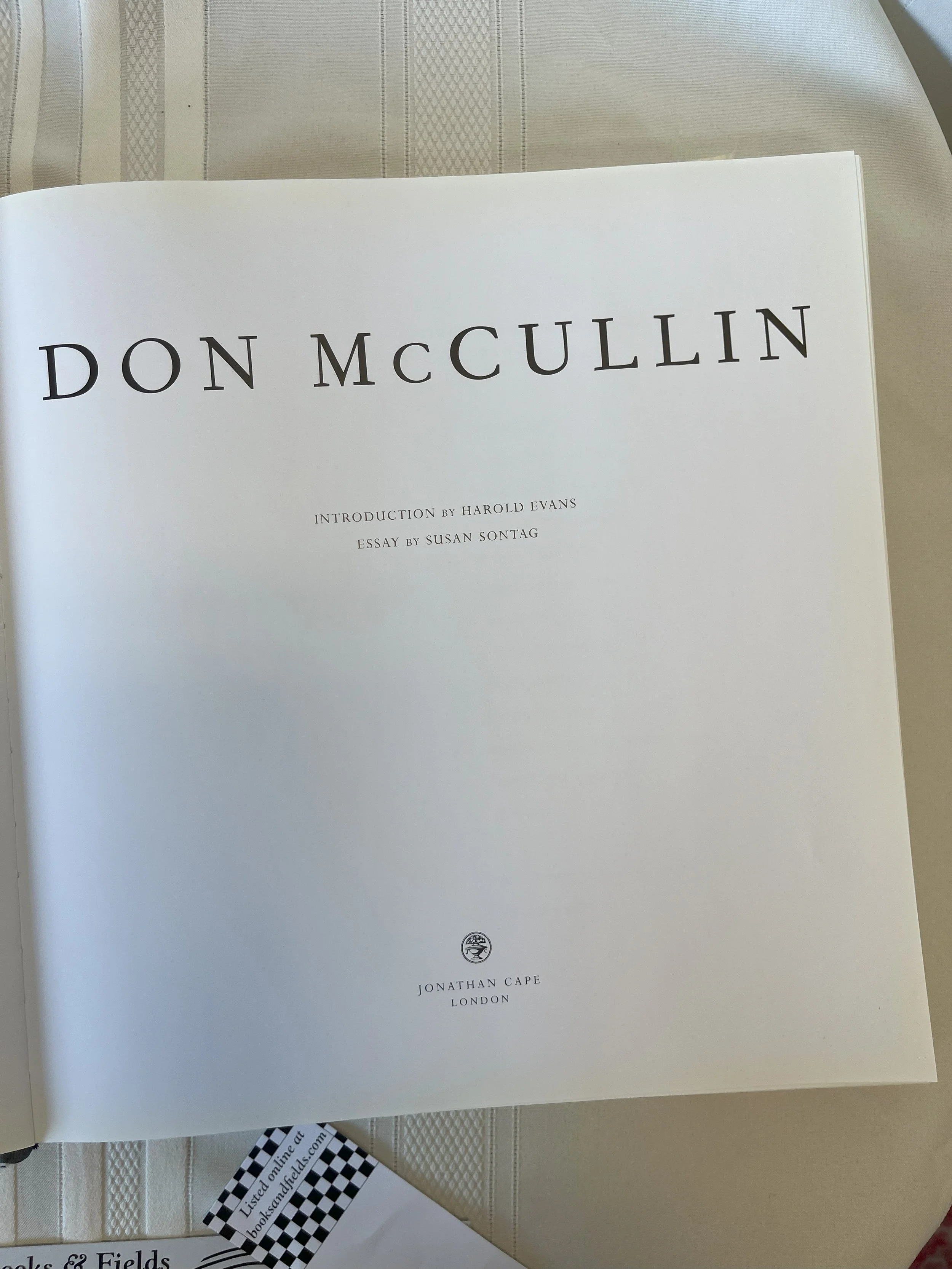 Image 10 of 16
Image 10 of 16

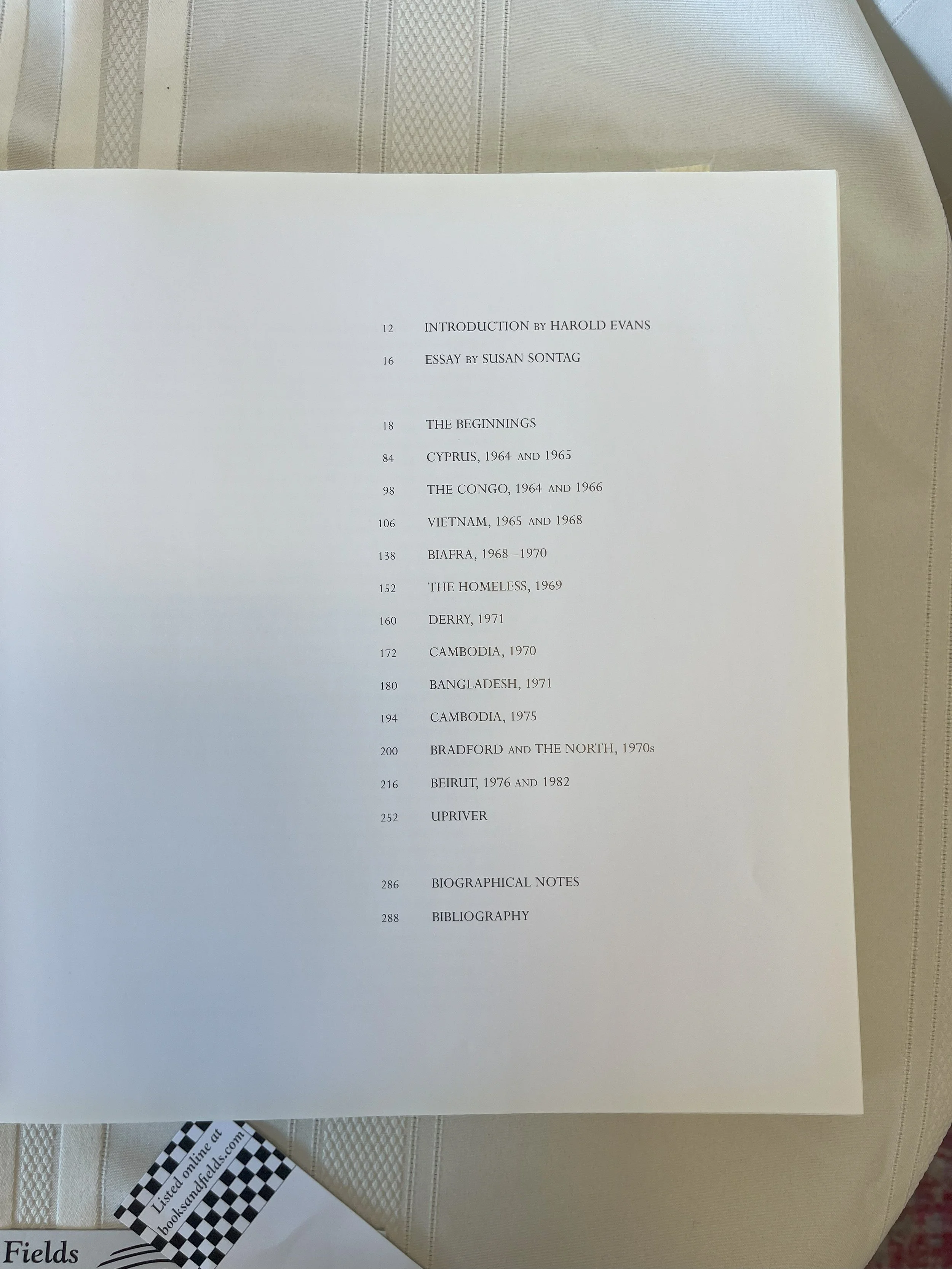 Image 11 of 16
Image 11 of 16

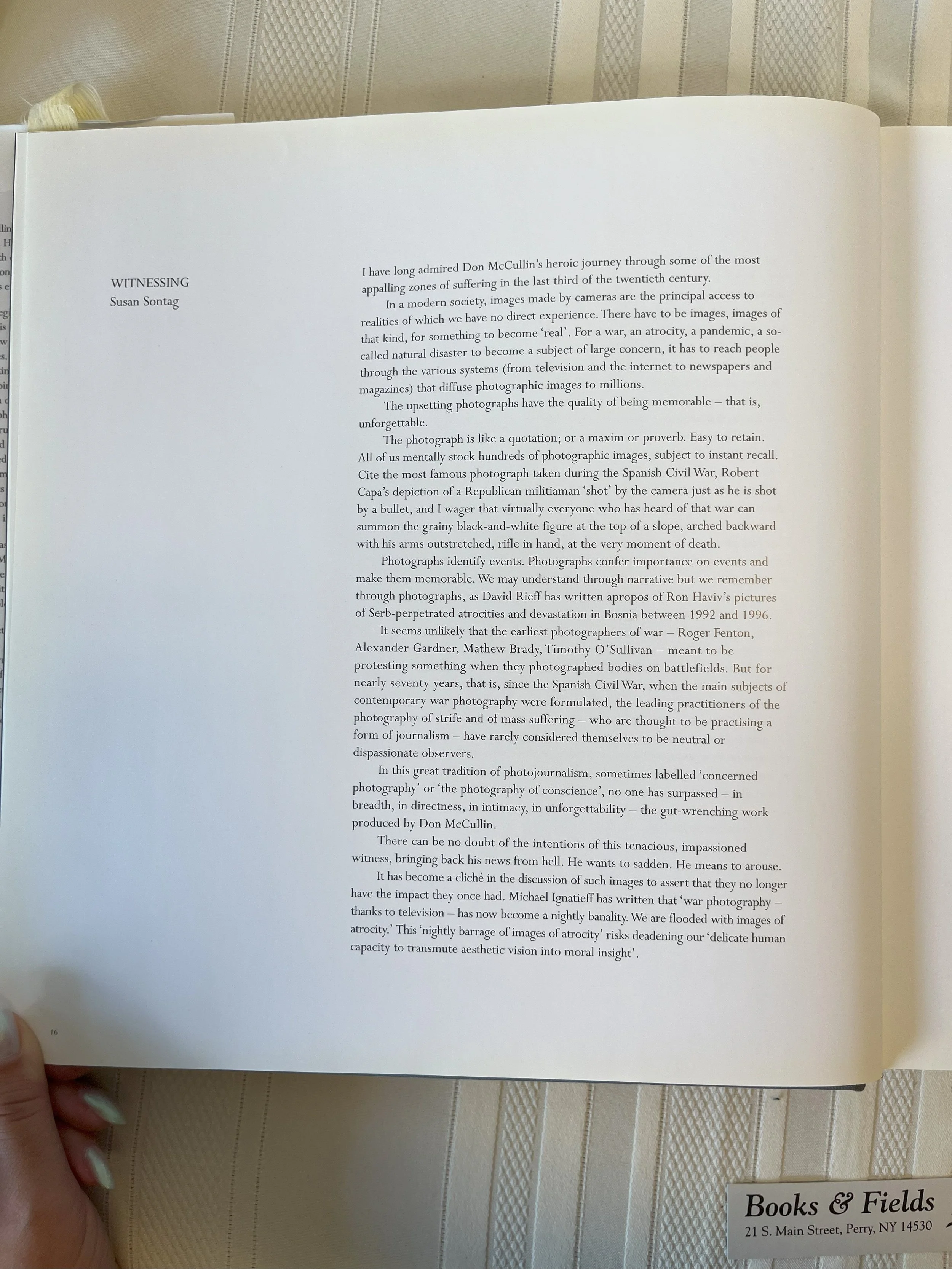 Image 12 of 16
Image 12 of 16

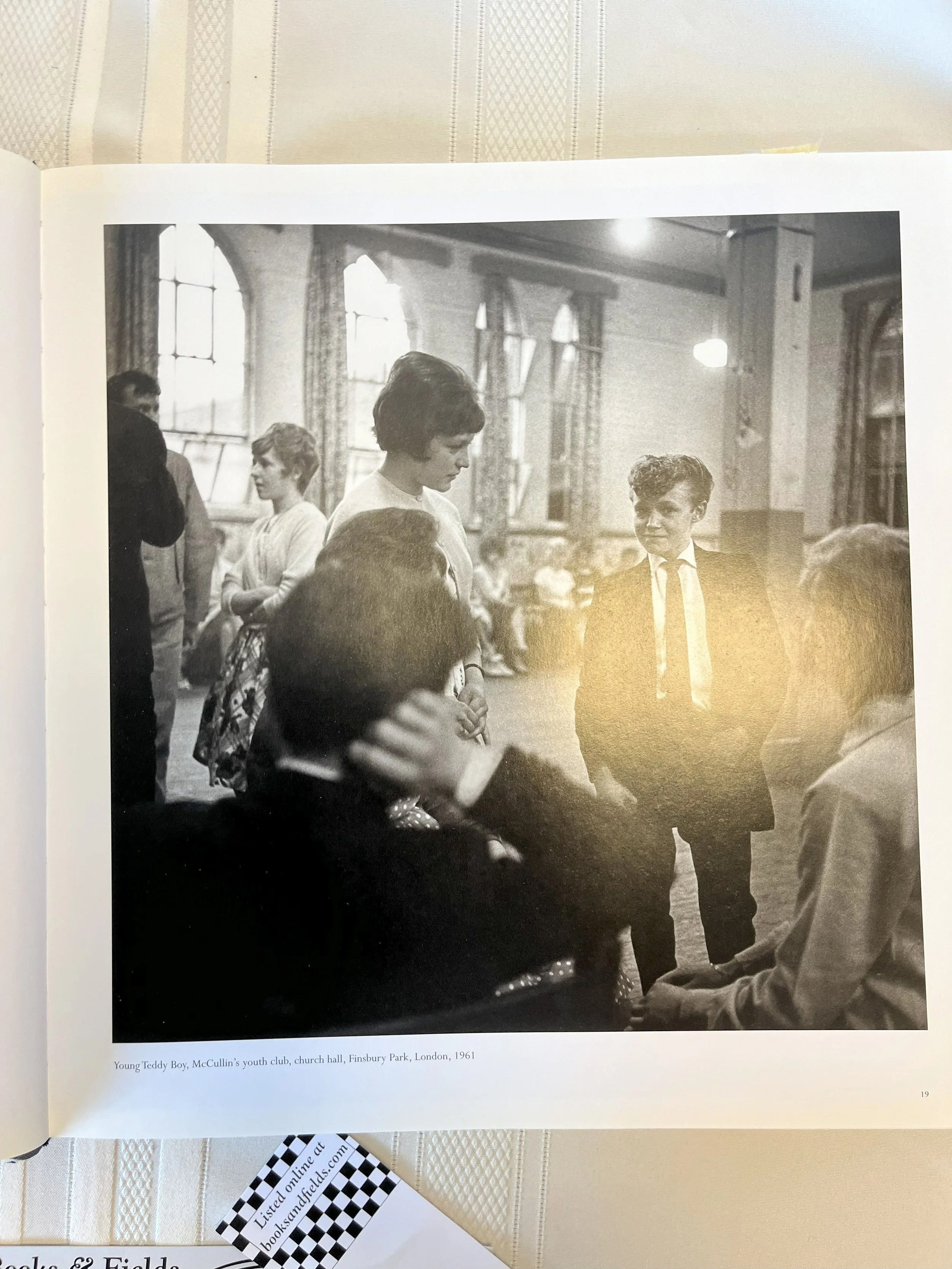 Image 13 of 16
Image 13 of 16

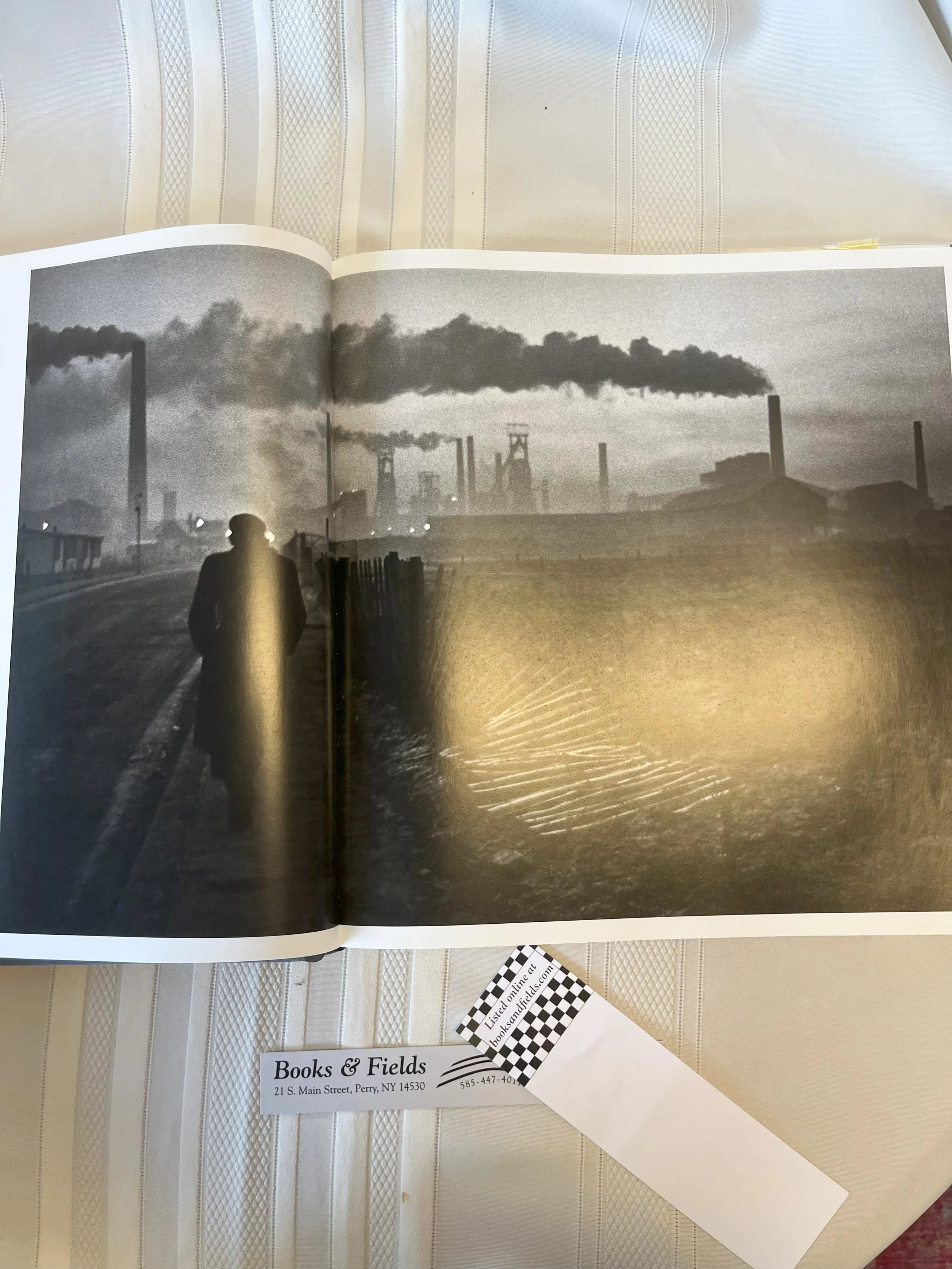 Image 14 of 16
Image 14 of 16

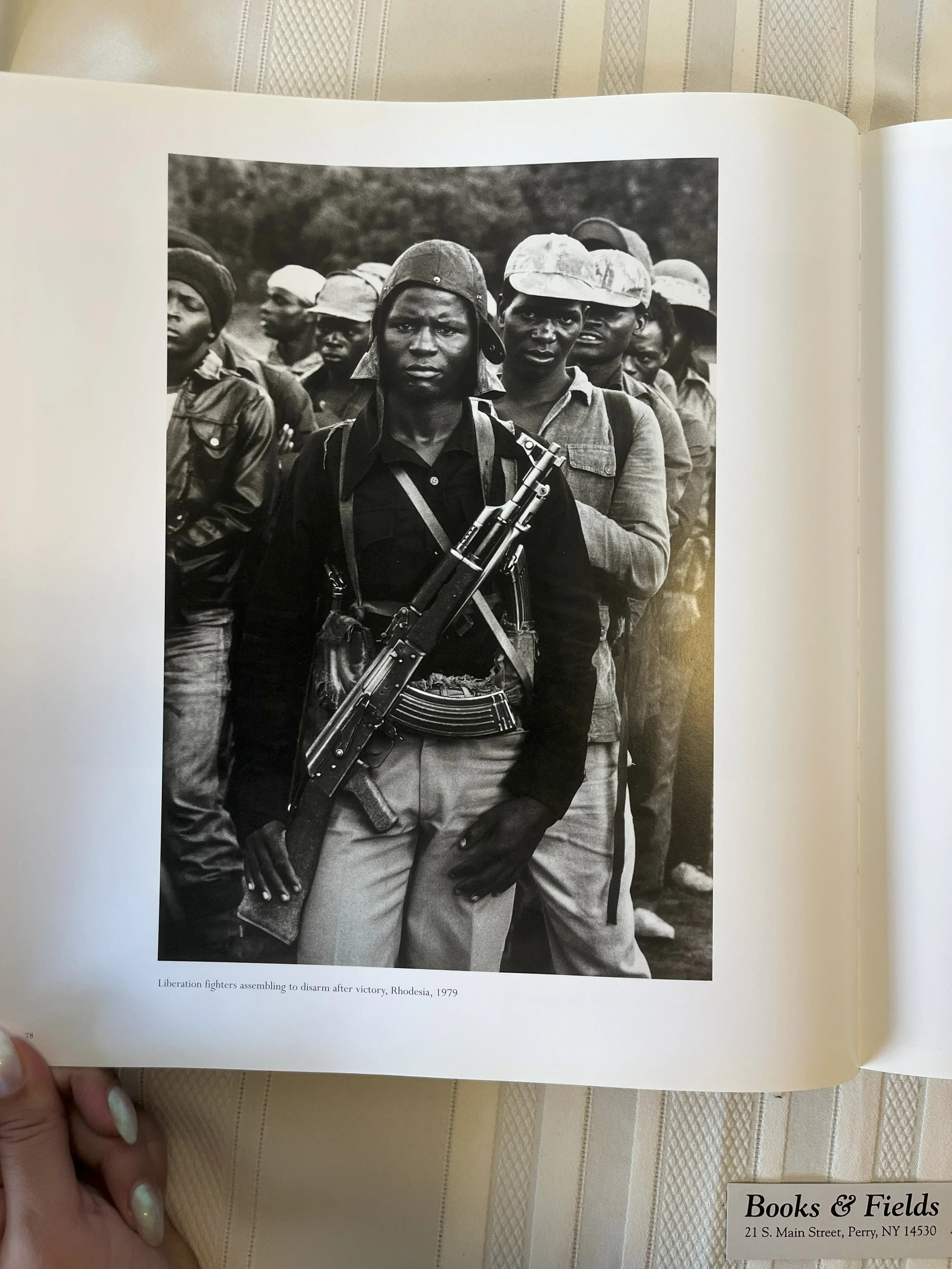 Image 15 of 16
Image 15 of 16

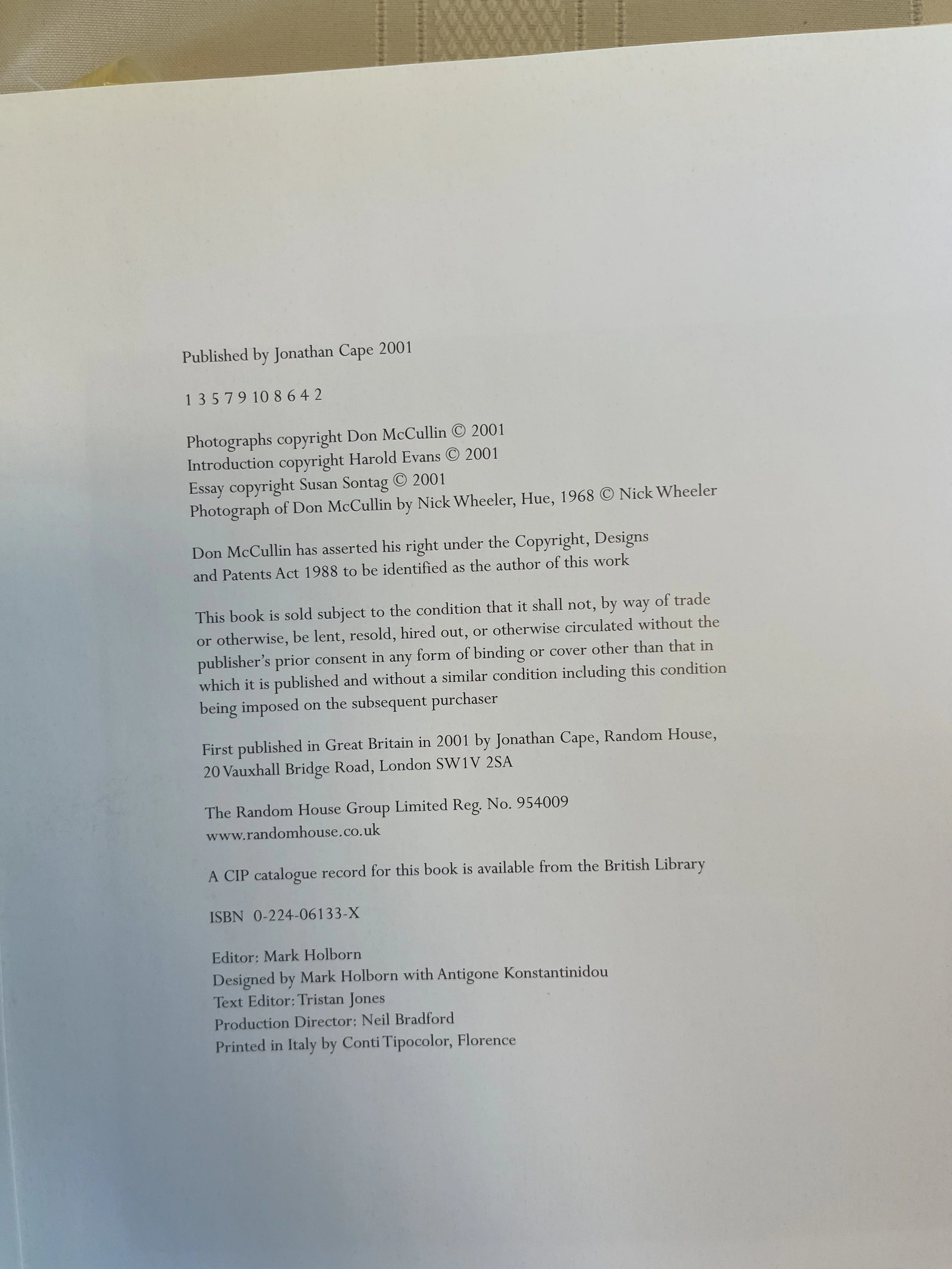 Image 16 of 16
Image 16 of 16

















Don McCullin
Editor: Mark Holborn
Intro: Harold Evans
Essay: Susan Sontag
Publisher: Jonathan Cape, 2001
ISBN: 0-224-06133-x
Page Count: 295
If McCullin were American, he would be as well-known as David Douglas Duncan or Mathew Brady. If he was born earlier in the 20th Century, he would be the peer of Robert Capa. So it is an agreeable surprise to find a volume on an under-rated artist with courage beyond what most of us can muster. His career has concentrated on the unwinding of colonialism and the violence and decay that process generated. Crumbling English cities. Cyprus. Biafra. Vietnam. He was drawn everywhere that violence exploded. Later in his career he chose more pacific themes, partly to help purge his memories.
His photos have an immediacy and emotional potency missing in many photographers of conflict. This is not accidental. In a BBC interview he said this: Photography for me is not looking, it's feeling. If you can't feel what you're looking at, then you're never going to get others to feel anything when they look at your pictures [Credit to Wikipedia]. This sentiment and his travels and his courage help explain why Susan Sontag wrote an introductory essay to this volume. Photography—or more properly the cultural interpretation of photography—was one of her passions. In McCullin she found a worthy subject.
Condition: Fair to Good. The book is clearly worn but there are no problems with the binding, and all pages are present and intact.
Editor: Mark Holborn
Intro: Harold Evans
Essay: Susan Sontag
Publisher: Jonathan Cape, 2001
ISBN: 0-224-06133-x
Page Count: 295
If McCullin were American, he would be as well-known as David Douglas Duncan or Mathew Brady. If he was born earlier in the 20th Century, he would be the peer of Robert Capa. So it is an agreeable surprise to find a volume on an under-rated artist with courage beyond what most of us can muster. His career has concentrated on the unwinding of colonialism and the violence and decay that process generated. Crumbling English cities. Cyprus. Biafra. Vietnam. He was drawn everywhere that violence exploded. Later in his career he chose more pacific themes, partly to help purge his memories.
His photos have an immediacy and emotional potency missing in many photographers of conflict. This is not accidental. In a BBC interview he said this: Photography for me is not looking, it's feeling. If you can't feel what you're looking at, then you're never going to get others to feel anything when they look at your pictures [Credit to Wikipedia]. This sentiment and his travels and his courage help explain why Susan Sontag wrote an introductory essay to this volume. Photography—or more properly the cultural interpretation of photography—was one of her passions. In McCullin she found a worthy subject.
Condition: Fair to Good. The book is clearly worn but there are no problems with the binding, and all pages are present and intact.